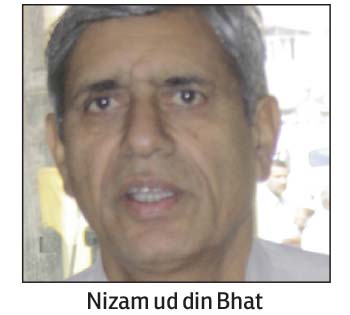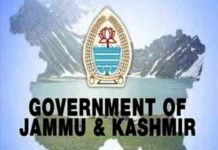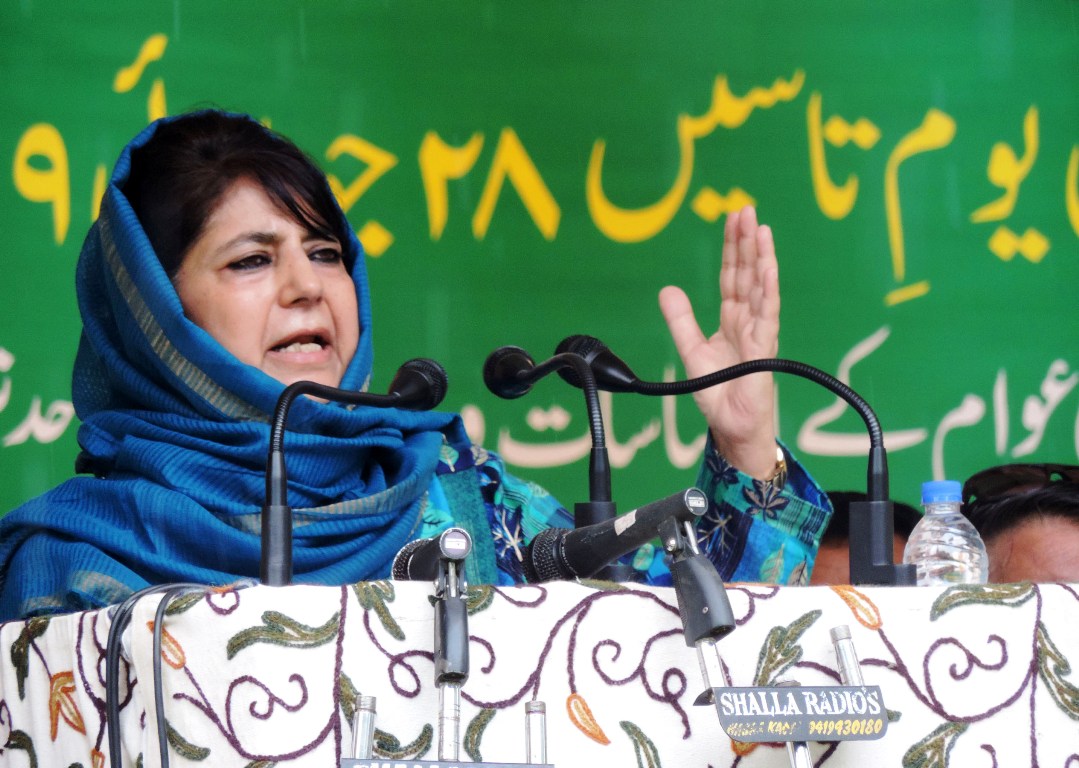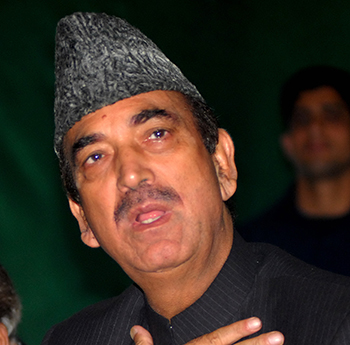Kashmir Wire
Srinagar
The accusation of senior PDP leader Nizamuddin Bhat that state’s forest ministry was responsible for the “pathetic” state of Asia’s largest freshwater lake, Wular, has once again brought to the fore J K bureaucracy’s politics based on bias towards Kashmir and its people.
It is not only that the water body which suffered because of the failure of the authorities to implement Rs 500 crore assistance sanctioned by the Centre meant for conversation and treatment of Wular, but a massive World Bank assistance for additional block for the only woman’s hospital, Lalded, remained unimplemented for three years because of undue interference by bureaucracy.

The World Bank has sanctioned a huge amount for the additional block for the hospital in Kashmir after 2014 devastating floods. However, the bureaucratic interference has kept the project in absence. Even the work has not been started on the project after three years – the reason a top bureaucrat wants a portion of the funds to be diverted to Jammu for not a valid reason, officials in the health department told Kashmir Wire.
They said the amount was sanctioned by the world bank on humanitarian grounds for Kashmir, which bore the brunt of the floods in 2014 but a deliberate attempt was made by the bureaucracy to prevent the benefit reaches the Kashmiris.
Wular is what the Nile is to Egypt but official apathy has reduced the once sprawling lake into a shadow of its original self.

Wular, which has been a victim of decades of neglect, is shrinking in north Kashmir Bandipora district. The waters of the lake located at a height of 1580 meters once a popular tourist attraction in the state of lush green fields and vast apple orchards are muddy, weed-infested and ringed by a huge expanse of marshy land.
Local officials, ignoring the more obvious claims of Siberia’s Lake Baikal and other contenders, fondly refer to Wular as Asia’s largest freshwater lake. But years of neglect have converted the idyllic mountain state into a paradise lost have reduced the once sprawling lake into a shadow of its original self.
The situation is more prominent towards shores where the lake is being reclaimed for agricultural and housing purposes. But the settlement on the lake shore over the past decades have reduced the lake from its original size of 202 square kilometers to 24 square Kilometers, a senior official said.
In 1990, Wular was designated a wetland of international importance under the Ramsar Convention, a global treaty that provides the framework for international cooperation for the conservation of wetland habitats.
India is a signatory to the treaty and has declared Wular as a Ransarsite. But so far nothing fruitful has been done to save this lake. Eruption of militancy in 1990 in Switzerland of Asia prevented the government from taking any measures to conserve Wular which also acts as a huge absorption basin for floodwaters in the Himalayan region.
Locals say it is important to take immediate steps to rescue Wular because about Ten lakh or more people depend on the lake’s resources such as water chestnuts and fish for living.
“Wular contributes about 60 to 70 per cent of fish in the Kashmir valley”, an official of the fisheries department said.
The increase level of pollution in the lake is directly related to decrease in growth of the plants of the economic use. The production of nelumb nucifera (Nadroo), Trapa natan (Gour) on which thousands of people earned their livelihood is decreasing over the years, especially after 2014 floods.
“Thousands of poor people of the area are directly dependent on the lake, it s survival is important. It is high time to start working”, officials said.
They said the government planned to revive the lake, which included recovery of land that has been encroached and continuous monitoring of water quality. Besides construction of silt traps around the lake, de-weeding, biotechnology will be used for rejuvenating and preserving wular lake.
The runoff in the form of different kinds of fungicides, pesticides and insecticides used in the catchment spills into the lake and affects the different food chains and networks in the lake ecosystem.
PDP leader Nizamuddin Bhat said the union government had approved Rs .268 crore project in 2010-11 for de-silting of 27 KM critically filled lake area. Of this Rs.120 crore were released in the first phase. The amount was kept at the disposal of the forest department, which had to purchase two dredging machines. But this did not happen and the main task remained on hold and lake started shrinking further.
He said as a result of the non-execution of the project, the second installment was not released by the central government.
Bhat said that to conceal its failures the forest ministry is now trying a cover up. H said it is reliably learnt that forest ministry has devised a plan to go for composite tenders for sale of plantations in Wular which they anticipate can fetch them Rs.250 crores.















